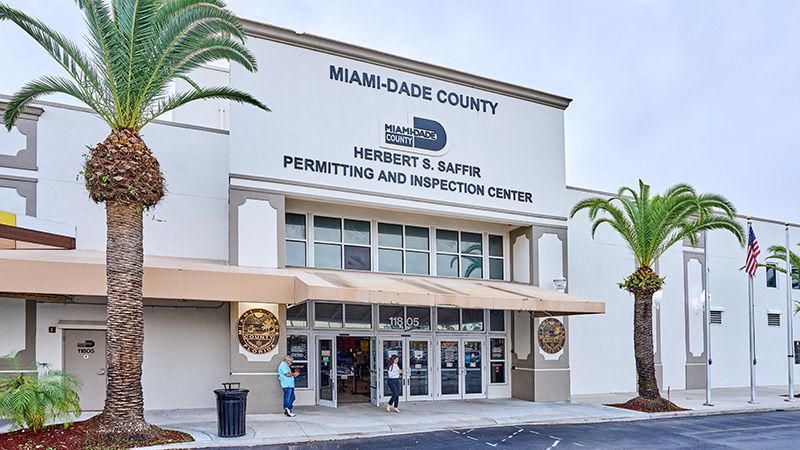Department Of Regulatory And Economic Resources

Miami-Dade County faces a constant balancing act: fueling economic growth while safeguarding its environment and ensuring equitable opportunities for all its residents. The linchpin of this delicate equilibrium is the Department of Regulatory and Economic Resources (RER), an agency whose decisions ripple through every facet of life, from construction permits to affordable housing initiatives, and from environmental protection to small business support.
RER's sprawling mandate makes it both a powerful engine for progress and a potential source of bureaucratic friction. Understanding its inner workings, its successes, and its challenges is crucial for anyone invested in the future of Miami-Dade. This article delves into the core functions of RER, examining its key divisions, recent initiatives, and the critical role it plays in shaping the county's economic and environmental landscape.
The Many Faces of RER: A Department Divided
The Department of Regulatory and Economic Resources is not a monolithic entity. It's comprised of numerous divisions, each with a specific focus and set of responsibilities. These divisions collaborate, but also operate with a degree of autonomy, reflecting the complexity of the challenges RER addresses.
The Division of Environmental Resources Management (DERM) is at the forefront of protecting Miami-Dade's natural assets. This includes managing water quality, preserving wetlands, and regulating coastal development. DERM plays a critical role in ensuring the long-term sustainability of the county's environment.
The Division of Development Services (Building Department) oversees the permitting and inspection of construction projects. This division ensures that buildings are safe, comply with building codes, and are environmentally sound. Efficient permitting processes are vital for stimulating economic activity and attracting investment.
Economic Development & International Trade works to attract new businesses, expand existing industries, and promote Miami-Dade County as a global trade hub. This division offers resources and support to businesses of all sizes, helping them navigate the local market and compete in the international arena.
Affordable Housing & Community Development tackles the critical issue of housing affordability. This division develops and implements programs to increase the supply of affordable housing options for low- and moderate-income residents. These initiatives are vital for ensuring that Miami-Dade remains accessible to all its residents.
Recent Initiatives and Key Projects
RER is continuously evolving, adapting its strategies to meet the changing needs of the county. Several recent initiatives highlight the department's commitment to innovation and progress.
The Resilient305 Strategy, spearheaded by RER, is a comprehensive plan to address the challenges posed by climate change. The strategy focuses on mitigating the impacts of sea-level rise, strengthening infrastructure, and promoting sustainable development. This is a long-term project critical for the survival of the county.
RER has also implemented measures to streamline the permitting process, reducing delays and improving efficiency for developers and homeowners. This includes adopting new technologies and implementing process improvements. Faster permitting leads to economic growth.
In the realm of affordable housing, RER has launched several new initiatives, including public-private partnerships and incentive programs for developers. These programs aim to increase the availability of affordable housing units and reduce the burden on renters and homeowners.
"Our goal is to create a more resilient, sustainable, and equitable Miami-Dade County," stated a recent press release from the Office of the Mayor. "RER is at the heart of this effort, working tirelessly to address the challenges facing our community."
Challenges and Criticisms
Despite its many successes, RER faces significant challenges. The sheer volume of applications and projects it handles can lead to delays and backlogs. This can frustrate developers, homeowners, and businesses alike.
Some critics argue that RER's regulations are overly burdensome, stifling economic growth and hindering innovation. They argue for a more streamlined and business-friendly approach. Balancing economic growth with environmental protection remains a major challenge.
Others contend that RER is not doing enough to address the affordable housing crisis. They call for more aggressive policies and greater investment in affordable housing programs. The rising cost of housing is a major concern for many residents.
Navigating the Bureaucracy
For individuals and businesses interacting with RER, navigating the bureaucracy can be a daunting task. Understanding the department's structure, processes, and regulations is essential for a smooth and efficient experience. Resources are available online and through various community organizations that can help navigate the complex processes.
It's important to thoroughly research the requirements for any permit or application. Preparing all necessary documentation and seeking professional advice can save time and avoid costly delays. Seeking help early in the process is important for avoiding problems later.
Engaging with RER staff and attending public hearings can also provide valuable insights and help individuals understand the rationale behind decisions. Being proactive and informed is vital for success.
Looking Ahead: The Future of RER
The future of RER will be shaped by several key factors, including technological advancements, climate change, and the ongoing need for affordable housing. The department must continue to adapt and innovate to meet these challenges.
Investing in technology to automate processes and improve efficiency will be crucial. This includes implementing online permitting systems and using data analytics to identify trends and improve decision-making. Technology can improve efficiency and transparency.
Strengthening partnerships with the private sector and community organizations will also be essential. Collaboration can leverage resources and expertise to achieve common goals. Working together is the key to success.
Ultimately, the success of RER will depend on its ability to balance economic development with environmental protection and social equity. This requires a commitment to innovation, transparency, and community engagement. Miami-Dade's future depends on it.


















